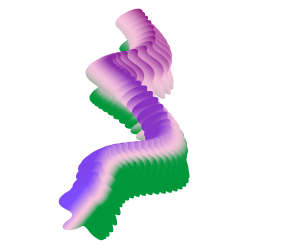Teaching To Transgress Toolbox* is a no-credit collective research and study programme on critical pedagogy using artistic tools based on peer-learning and collective research. The whole project runs for two years (2019-2021). The actual study programme is structured in four one-week workshops during 2020 and is developed transnationally by three European art schools, erg in Brussels, HDK/Valand in Göteborg and ISBA in Besançon. It is funded by Erasmus+ Strategic Partnership Grant.

*The title is inspired by bell hooks’ book Teaching to Transgress: Education as the Practice of Freedom.
Context
Over the past ten years, tendencies towards polarisation and discrimination in the wider society have had a perceptible influence on attitudes and behaviours within education with forceful impacts on inclusive learning and teaching in our classrooms.
In attempts to meet these threats to diversity and pedagogical inclusivity we identify the pressing need to respond to these political and social issues. Intersectionality asserts that oppressions (based in racism, sexism, homophobia, classism, etc.) are interconnected and cannot be examined separately from one another. Critical intersectional feminist pedagogies have, by now, been proven to provide valuable conceptual and practical tools with which to focus on inclusivity. This is particularly true in the field of art, where teaching is known to be open to devising and applying new critical frameworks, tools of analysis and creative practices.
For whom
The “Teaching to Transgress Toolbox” is addressed to artists, researchers, students and teachers. The explicit aim is fostering inclusive pedagogies, and questioning the so-called neutrality and equality in systems of schooling, production and consumption in the arts. The programme invites people from various backgrounds, fields, abilities, gender identification, sexual orientation, ethnicity and religion. They will collectively explore how intersectional and de-colonial approaches can activate and spread theoretical and embodied knowledges.
Conditions
An important dimension of this programme is working collectively. We are planning four joint one-week workshops over the year. You will need to be committed to participate in all four workshops and invest some time in-between to do research, follow-up on and prepare the joint work sessions. Your travel and accommodation expenses will be covered for the four joint workshops.
The workshops will be multilingual with predominant use of transnational English colored by our different accents. Therefore, you need to have a basic understanding/knowledge of English, and we will help each other with informal translations.
The programme consists of four common moments during 2020 followed by a publication (2021) and an ongoing online platform/archive.
Workshop 1 How to say it?
hosted by erg, école de recherche graphique, Brussels.
We will examine modes of transmission as political tools: inclusive
writing, non-binary languages, alternative voices, critical body.
Workshop 2 Sparring Partners
hosted by HDK/Valand, Göteborg University.
We will investigate the complexities of an institutional body. Meet and
work this body through its members, its language, its movements, its
protocols, its entry points, its questions. And then, what did we learn?
Workshop 3 A school within a school
hosted by ISBA, Besançon.
We will put into practice the teaching experiences, strategies and tools gathered during the year.
Workshop 4 Bringing thoughts together
hosted by erg, école de recherche graphique, Brussels.
We will formalise the developed methods and tools in a range of
experimental artistic and discursive formats. These will be shared to a
wider public via an online platform/archive and a publication in 2021.
